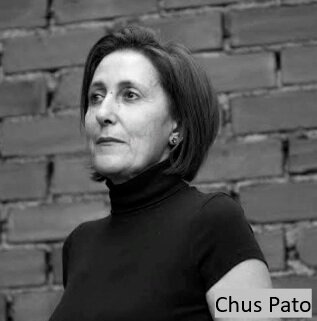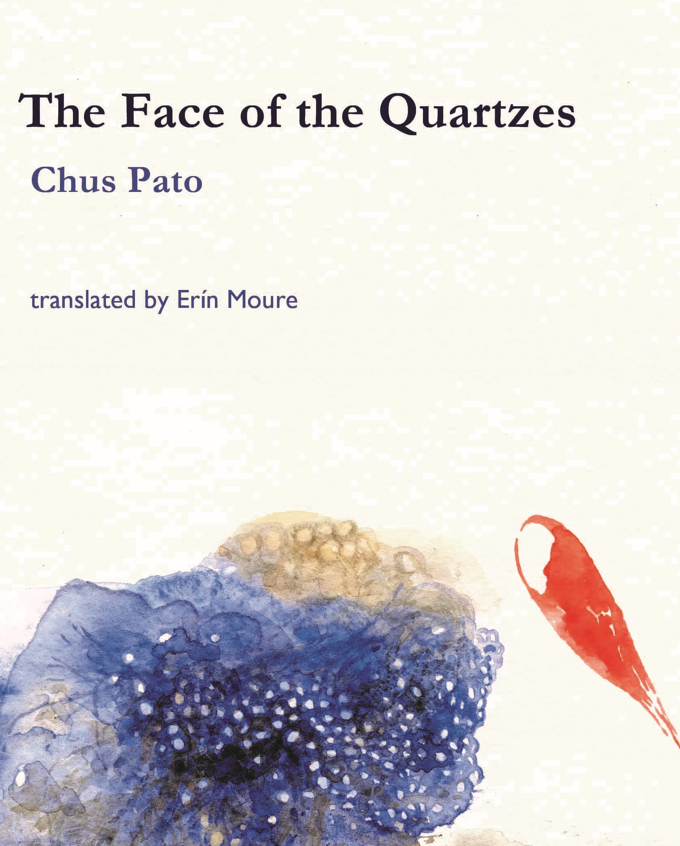The Face of the Quartzes
In The Face of the Quartzes, her twelfth book of poetry and sixth to be translated by Erín Moure, Chus Pato creates a manual for living that is one with birds, with animals, with peaks and trains and lighthouses, and with women who undertake journeys toward life (the improper) and spring (renewal). Her poems acknowledge an unrequitable gift: that of poetry, the language of poetry, the possibility of poetry, its impropriety and its freedom.
The book includes an introduction (in part explaining why a book called Un libre favor ended up as The Face of the Quartzes!), a materials index, and a translation of an interview with Chus Pato by Peruvian poet Maurizio Medo.
ABOUT THE AUTHOR
Chus Pato is one of Europe's greatest contemporary poets, and an indispensable force in Galician and Spanish culture. All five books of the pentalogy Decrúa (Delve), translated by Erín Moure, have appeared in English: m-Talá, Charenton, Hordes of Writing, Secession, and Flesh of Leviathan. The original Hordes of Writing in Galician received the Spanish Critics' Prize in 2008 and the Losada Diéguez Prize in Galicia in 2009. In 2013, the Galician Booksellers' Association fêted Pato as Author of the Year. In 2015, she became the first Galician poet to be recorded for the sound archives of the Woodberry Poetry Library at Harvard University. Her work has been translated into Dutch, Bulgarian, Polish, Portuguese, Catalan, Spanish, and French, among other languages.
ABOUT THE TRANSLATOR
Erín Moure is a poet and translator who once wandered, and currently stays close to home in Montréal. Her translation of Galician poet Lupe Gómez, Camouflage (Circumference Books, 2019) was a finalist for a 2020 Best Translated Book Award. Her latest book is The Elements (Anansi, 2019) and her latest translations are Uxío Novoneyra's The Uplands: Book of the Courel and other poems (Veliz Books, 2020) from Galician and This Radiant Life (Book*hug, 2020) from the French of Chantal Neveu.
PRAISE FOR THE FACE OF THE QUARTZES
Erín Moure’s englishing of Galician poet Chus Pato’s newest work is a gift of gorgeous intelligence for all of us who crave the amplitude of the poem as a nascent site of freedom. This vast, concise book is a place to travel in the company of sybils in fleet canvas sneakers, wandering amazons, the girl Aphrodites of celestial republics, phantoms expelled from rusted hulls of ships, all of them lustily reading as they walk, and nonchalantly speaking philosophy with animals. For Pato, poems are contemporary with rust and tar and moss. They throw their voices into stones like ancestors. History is landscape and lives in the vocable.
—Lisa Robertson, author of The Baudelaire Fractal
Cover image by Vida Simon


Photo by Xosé Gómez

Photo by Karis Shearer

